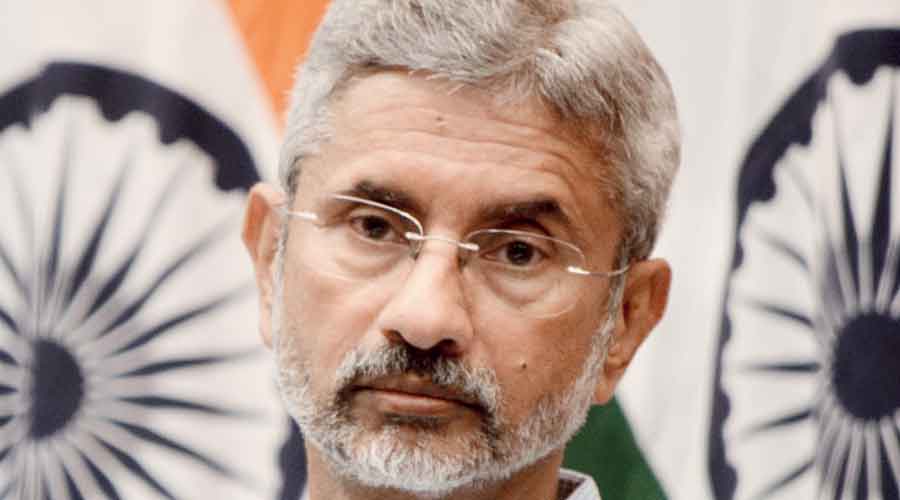Amid reports that India has opened channels of communication with the Taliban ahead of the US and Nato troop withdrawal from Afghanistan, external affairs minister S. Jaishankar on Tuesday asserted that New Delhi has been supportive of all efforts to accelerate the dialogue between the Afghan government and the Taliban, including the intra-Afghan negotiations.
This is one of the rare occasions when the Indian government has publicly referred to the Taliban in a public forum. Usually India refers to the power-sharing negotiations in Afghanistan as intra-Afghan dialogue, even though Taliban is a key player in this process.
Jaishankar made this direct reference to the Taliban — in an evident acknowledgment that these forces will be part of the future dispensation in Kabul — while addressing the UN Security Council debate on the UN Assistance Mission in Afghanistan.
Referring to the UN secretary-general’s report on the situation in Afghanistan, Jaishankar said it was clear that “the intra-Afghan talks have not resulted in a reduction of violence in Afghanistan’’. Urging the council to press for a permanent and comprehensive ceasefire to ensure immediate reduction in violence and protection of civilian lives, he said: “If the peace process is to be successful, then it is necessary to ensure that the negotiating parties continue to engage in good faith, eschew the path to find a military solution, and fully commit towards reaching a political solution.’’
Jaishankar reiterated India’s support for a leading role for the UN in the process to improve the odds for a lasting and durable outcome. “A durable peace in Afghanistan requires a genuine ‘double peace’. That is, peace within Afghanistan and peace around Afghanistan. It requires harmonising the interests of all, both within and around that country,’’ he said in a veiled reference to Pakistan’s role in Afghanistan given Islamabad’s links to Taliban.
“For enduring peace in Afghanistan, terrorist safe havens and sanctuaries must be dismantled immediately and terrorist supply chains disrupted. There needs to be zero tolerance for terrorism in all its forms and manifestations including its cross-border one.
“It is equally important to ensure that the territory of Afghanistan is not used by terrorist groups to threaten or attack any other country. Those providing material and financial support to terrorist entities must be held accountable,’’ Jaishankar added.
As the Biden administration plans to pull out of Afghanistan by September 11 — the 20th anniversary of the 9/11 terror attacks that triggered the War on Terror in the ‘graveyard of empires’ — the spectre of the Taliban having a key role in the country looms large and India has had to rethink its decades-old policy of not dealing with the Taliban.
Over the past decade, India has invested heavily in the reconstruction of Afghanistan. It has 550 community development projects across all 34 provinces of the strife-torn country, and these cannot be sustained without the support of the Afghan government.











